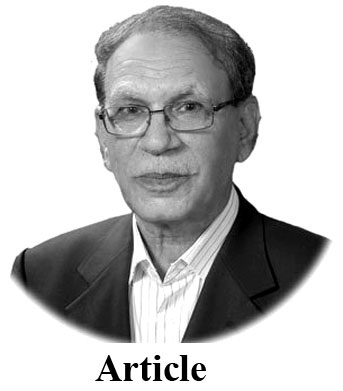Mohammad Jamil
BJP had won 2014 general election on the basis of
Narendra Modi’s performance as Chief Minister
of Gujarat, and of course with the support of extremist organizations especially BJP’s parent organization RSS. Overall, Gujarat’s gross state domestic product had grown at an average of 16.6% a year from 2001 to 2010. But since Narendra Modi became Prime Minister of India, he has not been able to achieve robust economic growth as promised by him. In spite of low commodity prices, the manufacturing sector has not been able to grow. This is primarily due to contraction in volumes in the auto sector, decline in value of merchandise exports and slowdown in growth in other consumer sectors. Construction sector growth has fallen to a seven quarter low; after agriculture, construction is the second largest employer, which has been adversely impacted. This sector has been hit by demonetization and changes in the Real Estate Regulation Act.
More than 3.5 lakh people have lost their jobs in the auto industry alone; nearly 60,000 diamond workers are currently jobless in Gujarat; prominent industrial cities like Jamshedpur saw 30,000 job losses with more than 700 companies being closed in the last three months. Under-performance is evident in almost every sector. That the Indian economy is in the doldrums is now known to everyone – from businessmen to farmers, from the middle-class homemaker to the top economists, and from opposition politicians to foreign investors. The truth is, a combination of factors has pulled down India’s GDP growth to a six-year low of 4.5% in the July–September quarter, following on from 5% in the April-June quarter. India’s growth rate now ranks fifth, behind the economies of Vietnam, China, Egypt and Indonesia. As a result of Narendra Modi’s reckless policies and especially Citizenship Amendment Act, there are protests in almost all Indian states.
After BJP’s massive sweep in Lok Sabha election, BJP government was squeezing space of regional parties that started re-aligning their politics and staged a comeback in Maharashtra and Jharkhand elections. Same trend is expected in upcoming Delhi State elections in February 2020. PM Narendra Modi and Home Minister Amit Shah had actively participated in election campaign; however, Modi magic did not work this time round. It is a significant setback for BJP, which is losing power in one state after other. Opposition will use result as an outright rejection of Citizenship Amendment Act (CAA) and communal politics of the BJP, which is likely to continue with its Hindutva agenda. However discontentment against incumbent BJP government’s radical policies has started transforming into political mandate. Anyhow, India’s ruling Bharatiya Janata Party (BJP) has lost control of the eastern state of Jharkhand, being the fifth state in a row.
The results of the state assembly polls, declared last week, showed a pre-election alliance of the regional Jharkhand Mukti Morcha (JMM), the Indian National Congress and the Rashtriya Janata Dal (RJD) winning 47 of the 81 seats. The BJP, which ruled the state since 2014, won 25 seats, according to the Jharkhand State’s Election Commission. The Hindu nationalist BJP’s loss of a State it has ruled since 2014 is being seen as a setback for the policies of Prime Minister. These are the second state elections the BJP has lost since returning to power with a thumping majority in the general elections in May. Jharkhand state saw 17 lynchings between 2015 and 2018 according to Human Rights Watch with brutal cases like Alimuddin Ansari. In June this year, Tabrez Ansari, 24, was beaten to death by a mob in Jharkhand’s Kharsawan district on suspicion of theft, causing a public uproar.
Since 2012, at least 133 cow-related attacks were reported in India, leading to 50 deaths and more than 290 injured, according to the Fact Checker in database, which records such attacks. About 98 per cent or 130 of the crimes recorded in the database took place after 2014, when the BJP first came to power at the Centre, and in Jharkhand state later that year. “It is wrong to treat the Jharkhand results as a referendum on the citizenship law. State Assembly elections are fought on local issues,” BJP spokesman Gopal Krishna Agarwal said. In August, Modi’s government revoked the autonomy of Kashmir, the country’s only Muslim-majority state, and detained thousands of its young men. That same month, the government created a citizenship registry in the northeastern state of Assam, a move that could render millions of Muslims stateless. In each case, Modi met little resistance.
The means of Modi’s ascent has been the demonizing of Muslims. In 2002, when he was Chief Minister of the State of Gujarat, Modi presided over a mass communal bloodletting, in which some two thousand people were killed and a hundred and fifty thousand driven out of their homes. Most of the riot’s victims were Muslims; the demography of the state was transformed, with most Muslims crowded into ghettos. Credible evidence suggests that Modi allowed the riots to take place by refusing to use force against the perpetrators. At the very least, Modi capitalized on the pogroms politically, tapping into historic resentments about the nation’s former Mughal rulers and prejudices harboured by many Hindus. Thus Narendra Modi was instrumental in creating hatred against Muslims, and rose all the way to the Prime Minister’s office. However, the cost would be enormous, and India is on the path to perdition due to his policies.
—The writer is a senior journalist based in Lahore.










